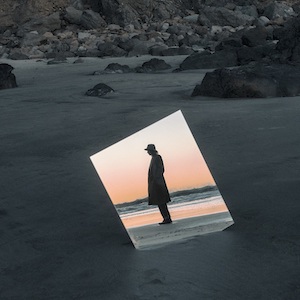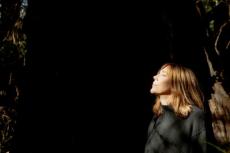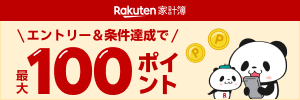「愛を見つけるためには、孤独な時間が必要だと思う」Interview with Beth Orton about “Weather Alive”
NeoL / 2023年1月30日 17時0分
ベス・オートンが昨年発表したアルバム『Weather Alive』は、彼女がその30年近いキャリアにおいて初めて自分でプロデュースした作品だった。レコーディングには、彼女の夫であり音楽家のサム・アミドンのほか、トム・スキナーやトム・ハーバートといった現在のジャズ・シーンを牽引する気鋭のミュージシャンが参加している。生楽器とエレクトロニクスが織りなす幽玄でアンビエントな音のレイヤー/テクスチャーが際立ち、瞑想を誘うように美しくも霊妙で実験的な感触をたたえたサウンドスケープ。その奥深い音の響きのなかで、オートンは過去の記憶、愛着と別れ、母性、憧れ、そして不確かな未来について思いを馳せている。「なぜ私は音楽を作るのか、なぜ音楽を作ることが好きなのかをあらためて感じることができた」。そう振り返るオートンの言葉をよそに、途中パンデミックによる影響で中断やスケジュールの変更に見舞われるなど、けっして平坦で順調なものではなかったというその制作過程。しかし、同時に『Weather Alive』はオートンにとって、アーティストとしての自身のアイデンティティを再発見し、それを新たなかたちで捉え直すような経験をもたらしたのではないだろうか、と想像する。
多くのメディアやリスナーの間で2022年を代表するレコードの一枚に選ばれるなど高い評価を受けた『Weather Alive』。年の瀬も迫った昨年12月の下旬、秋から続いたツアーを終えていち段落したオートンに話を聞く機会に恵まれた。
→ in English
――ニュー・アルバム『Weather Alive』を携えてのツアーはいかがでしたか。今回のサウンドをステージで表現する上で重視しているポイント、またこれまでと異なるアプローチがあれば教えてください。
ベス「良い調子です。乾いた世界の環境に囲まれながら湿った土の中で育てた小さな花を、その繊細さを壊さないようにステージにもっていって、それをリアルな世界の中で増幅させていってる感じ。それを繰り返して行く中で、ツアーがそれを祝福する場所になっていっている。今回のレコードを作ることは私にとって大きな成果だったし、ライブで披露することによって、それがもっと揺るぎないものになっていっている気がする。それは、私自身にとっても興味深いこと」
――『Weather Alive』は大きな称賛を集めていて、キャリアのベストに挙げる声も聞かれます。そうした評価や声をあなた自身はどう受け止めていますか。
ベス「ここまで高評価を得ることができたのは、私にも皆にとっても良いサプライズだった。アルバムがここまで受け入れてもらえているのは、本当に素晴らしいことだと思う。評価の内容もすごく詩的だし、アルバムに対する人々の感想も、私にとってはとても感動的。というのは、私自身がアルバムから感じることを、皆も感じてくれているのが伝わってくるから。今回のアルバムが私にもたらしてくれているもののおかげで、私はアーティストとしての自分を改めて取り戻すことが出来ていると思う」
――ご自身としても、今回のアルバムについてはこれまでの作品とは異なる手応えや思い入れが大きかったりするのでしょうか。
ベス「もちろん、すごく大きな存在。今回のアルバムは、他の人に聴かせることになるのかさえわからないまま作った作品。親が子供を育てるような感じで作っていて。親は、子供を愛しているから彼らを育てるでしょ? 自分が与えられるベストなものを彼らに与えたいし、彼らがベストになれることを願っている。そんな気持ちを持って作ったのがこの今回のアルバムです」
――それもあってか、今作はセルフ・プロデュース作ですよね。初めてのセルフ・プロデュースはいかがでしたか。
ベス「素晴らしかった」
――『Weather Alive』では、天候や自然、愛情、人間関係、記憶や時間の流れなど、私たちが目の当たりにしたり心の中に抱えていたりする様々な移ろいやすく不確かな感覚について歌われていて、その移ろいやすく不確かな感覚がサウンドでも繊細かつ鮮やかに表現されていると感じました。制作に際してはどんな姿勢で臨まれたのでしょうか。
ベス「今回はパンデミックの中での制作だったから、セルフ・プロデュースしか方法がなかった。それから、制作過程で私にとって大切だったのは、全ての曲で誠実さと完全性を保つこと。だからそのためには、やっぱりこのアルバムに参加してくれている素晴らしいミュージシャンたちの協力が必要だったし、彼らに参加してもらっても、自分で編集したりプロデュースすることで、曲のスピリットや雰囲気を維持することができたんです。それはすごく良かった。そして同時に、他のミュージシャンに入ってもらうことで、曲が持つ世界観を良い意味で広げることもできた。両方のやり方の長所をいかすことができたのはすごく良かったと思う」
――漠然とした質問になりますが、このアルバムを作ってみたことでわかったこと、驚かされたこと、あらためて気付かされたことなど、何かありましたら教えてください。
ベス「驚かされたことはたくさんありました。まず一つは、自分にあれだけの集中力があるなんて知らなかったし、全体を見渡す力があることもわかった。他の人には見えなくても、色々なことを経て、何が起こるかが私には読める時がある。今回のプロセスでは、色々な気づきがあって、毎回好奇心をそそられた。本当に色々なことを学んだんです。特に学んだのは、私のスタミナ(笑)。そして、自分が不安や心配事に打ち勝つ力を持っていることもそう。自分が作りたいものや誠実さがぶれなければ、私にはそれができるんだということがわかった」

ーー先ほど話されたように、今回のアルバムはさまざまなミュージシャンとのコラボレーションによって制作された作品でもあります。たとえばリズム・セクションを司ったトム・スキナーやトム・ハーバートに求めたこと、逆にかれらが今作にもたらしてくれたことは何でしたか。
ベス「トム・スキナーとは、もう16年の付き合い。2005年には一緒にツアーをしたりもしたし、彼とはずっとコラボしたいと思っていて。実は、今回の前に他のレコードでそれを試みたことがあったんだけど、あの時は、時期も作品もコラボにとって最適ではなかった。でも、今回はピアノがメインだったし、半透明な独特の雰囲気があったから、彼に参加してもらうなら今だ!と思って、彼にトラックを5つ送ったんです。ビートやループでなくていいから、彼には何かパーカッションを加えて欲しくて。私がそれをぶつ切りにして、その上からプレイできる何かを作って欲しかった。それを伝えたら、彼が素晴らしいパーカッションのパートを送ってくれて、私がそれを使って曲を作った。例えば“Unwritten”はその一つで、トムのパーカッションがトラックの基盤になった曲だと言えるかな。そして、その後、私が彼と私と3人でライブでレコーディングができるベースプレイヤーを探していたら、トム・スキナーがトム・ハーバートを紹介してくれた。その後3人で集まって、“Unwritten”をレコーディングしたんだけど、ハーバートのあのベースはワンテイクだったんです」
――へえ。
ベス「あれを聴いた時は、今までこんな美しいものは聴いたことがないってくらい美しいと思った。それくらい衝撃を受けたんです。で、その後またロックダウンがあって、それが開けてから数日間また一緒にレコーディングができるか彼らに尋ねたらOKがでて。だからまた3人で彼らがよく使ってるフィッシュ・ファクトリーっていうスタジオに入って、そのスタジオのエンジニアと一緒にレコーディングしました。その時に私は作っていた曲全てをプレイしたんだけど、最高でも一曲3テイクくらいまでしか録らなかった。本当に直感的で、サラッとしていて、素晴らしかった。みんなのおかげでベストなものをとらえることができたと思う。トム・スキナーが、よく“the first thought is the best thought”(=最初の思いつきが最高の思いつきだ)って言っているだけにね(笑)。トムたちだけじゃなく、今回参加してくれた皆に参加してもらうことになったのは、いい意味ですべて偶然だった。そして、皆と一緒に自然の流れで素晴らしいサウンドが出来上がった。最高で美しい偶然が重なって、アルバムの曲が出来上がっていったんです」
――そのトム・スキナーがメンバーを務めるサンズ・オブ・ケメットや、トム・ハーバートが一員のポーラー・ベア、そして今作でサックスを吹いているアラバスター・デプルームなど、現在のイギリスのジャズ・シーンを牽引するプレイヤーが参加しているのも本作のトピックのひとつです。最近、イギリスのジャズ・シーンはかなり盛り上がっていますよね。
ベス「本当にそう! 今年は特にクレイジーだったと思う。私は、自分自身がジャズ・シーンに属していないこともあって、あのシーンがあそこまで盛り上がっているなんて全然知らなかった(笑)」
――あなたから見て、今のイギリスのジャズ・シーンにはどんなところに刺激や面白さを感じますか。どんなインスピレーションをもらっていますか。
ベス「私にはわからない(笑)。トムたちにも、モダン・ジャズ・シーンのエナジーをもたらしてほしくて参加してもらったわけではないから(笑)。ジャズ・シーンにかかわらず、今のイギリスはあらゆるシーンからすごく刺激的なアーティストが出て来ていると思う。今は、イギリスの音楽にとってすごく重要な時期なんじゃないかな。それが何なのかを言葉で説明することは出来ないんだけど、彼らが放つエナジーにはすごく引き寄せられる。今回のレコードでも、皆がそれをもたらしてくれたと思う。それを聴いて、私自身すごく魅了されたし。皆に参加を依頼した時は、本当に直感的で、何をもたらしてくれるのかなんて意識してなかった(笑)。でも、結果本当に良い選択をしたなと自分でも嬉しく思っています」
――“Fractals”という楽曲もありますが、今回の『Weather Alive』にはそうしたミニマルな美しさや静けさが感じられて、心を静めたり瞑想を誘うような音のテクスチャー、音の響き(アンビエンス)が印象的です。個人的にはブライアン・イーノやファラオ・サンダーズの作品も連想したのですが、こうしたムードやニュアンスを捉えた作品になったのはどうしてでしょうか。
ベス「今、私は人生の中で瞑想的でゆっくり時間を過ごせる状態にいるんです。たくさん歩いて時間を過ごすのが好きだし、ピアノを弾いていると時間と時間の間に存在しているような気持ちになれる。今回のアルバムは、これまでに起こったことや過去へのリアクションではなく、瞑想的な空間に存在している今の私が作った作品。自分の人生の中に平和を求め、それを探している私の状態が表現されている。音楽を作っている時は本当に平和な時間を感じることができるし、私がなぜミュージシャンになったのかという本質を感じることができる。自分自身が誰なのかを知ることができるというか。それがサウンドに反映されているんだと思う」
――今作には、多彩な楽器の音色と共に、例えばあなたが咳を払う音やピアノスツールのきしむ音なども収められていて、そうした臨場感の演出は、この音楽が普段のあなたの日常や生活と地続きにあるような感覚を抱かせます。今作は、そうした今のあなたが立っている、目にしているラウンドスケープのサウンドトラックなのではないか、と感じたのですが、いかがでしょうか。
ベス「私は本当によく自然の中を歩くんです。今回のアルバムの曲を書いていた時は特にそうだった。何時間も何時間も歩いたな。ノーフォークからロンドンに引っ越してきた時も、森林の近くに住む場所を探して。田舎の出身だから私は自然が大好きだし、森の中に座っていると、本当にたくさんのものを吸収する。その環境は影響しているかもしれない。咳やピアノスツールのきしむ音に関しては、レコード制作の最後の方で、もうこれ以上は作れないと思った瞬間があって……身体的にも、精神的にも、もう無理!と思って、クレイグ・シルヴェイにミックスを任せた。そしたら、彼は咳の音もピアノスツールのきしむ音も、どんな音も一切消さなかったんです(笑)。髪の毛一本分さえ何も変えず、全ての音を残した。彼は、その全ての音をとても気に入ったらしくて。私が彼に渡した、“リアルさ”がすごく良いと思ったみたい。最初にミックスを聴いたときは、『ちょっと待って、あなたの仕事はサウンドをきれいに、クリアにすることじゃないの?』って思ったし、聴き難かった(笑)。でも、彼はむしろそういう音のボリュームを上げて、その存在感を強くした。彼は、それが美しいと思って、もっと強調したいと思ったらしい(笑)。子供が走り回る音も、犬の鳴き声も(笑)、そのリアルな日常感が魅力的だと感じたみたい」
――発声や呼吸の取り方も含めたヴォーカルのアプローチ、また、その録音やミックスに関して、これまでの作品と違って意識したことなどはありましたか。
ベス「その違いは、私ではなくてリスナーが感じることだと思う。自然と出来上がったものにすべてを合わせたんです。何か一つをもっと磨いてしまうと、その他すべてを磨かないといけなくなってしまう状態だったから。糸を一本引っ張り出したくて引っ張ってしまったら、そこに10本の糸が付いてきてしまうような感じだった。だから、何も触らないようにして。そこには奇妙なパズルが完成していて、そのピースを一つでも変えようとするとすべてが崩れ、組み立て直さないといけなかった。私は、それはしたくなかった。いつ手を加えるのをやめるかは、私が今回学んだことでもあった。ストップするのって、すごく大変なことなんです」
――今作は、ジャズやアンビエント、フォーク、クラシックなど様々な音楽がクロスオーヴァーしたサウンドだと言えますが、参加したミュージシャンのなかでシンサイザーを弾いているダスティン・オハロラン.の名前に目が留まりました。近年では映画音楽においても世界的な地位を確立しているコンポーザーですが、彼とはどのように出会ったのでしょうか。
ベス「ダスティンは、私の前回のレコードでプレイしてくれた。私の友人のルーシー・ブライトを通して知り合って、レコードに参加してくれないかと頼んだらOKしてくれて。私は彼の音楽が大好きだし、本当に美しいと思う。だから今回も彼にお願いすることにしたんです。彼が快くオファーを受けてくれたのは、すごく光栄だった」
――あなたと共同でエンジニアを務めたダニ・ベネット・スプラグは、今作の他にもブラック・ミディやアイドルズの最新作を手がけている若手の女性プロデューサーですが、彼女を起用した理由は?
ベス「彼女はクレイグのアシスタントだから」
――“Lonely”では、「falling」と「lonely」という言葉が響き合う瞬間が印象的で、「Will you be the ash of a well-tended fire/Will you be the ambush of my desire?」という問いかけも深い印象を残します。この曲へのアプローチについて教えてください。
ベス「ある意味、この曲はアルバムのサウンドの青写真と言える作品。他のどの曲もこれに続いて、この曲のような感情の深さを持つようになったから。この曲は、愛の探求の曲。けれども、愛を見つけるためには、孤独な時間が必要だということを歌っている。そして最終的に、孤独を受け入れる。深い愛、ずっと続く愛を知り、得るためには、孤独を知らなければいけない。そして、孤独を受け入れ容認しなければならない。パンデミックは全く関係なく、これはずっと私が感じてきたことです」
――“Friday Night ”は、あなたが10代の頃の親友について歌った曲だと聞きました。歌詞からは、痛みや悲しみに寄り添い、癒すこと、セルフケアについて描いた歌という印象を受けましたが、なぜ彼女について書こうと思ったのですか。
ベス「私が彼女について書いたわけではなくて。曲を書いて歌っている時に、彼女のことを考えるようになった。彼女に向けて歌っているような気持ちになったというか、そんな感じ。この曲もラブソングで、“Lonely”と同じように孤独についてでもあるし、回顧録でもあり、受け入れることについての曲。彼女との繋がりにインスパイアされて出来上がった曲だと思うし、彼女のことが思い出される。ちょっと複雑なんだけど、これがラブソングであることは確かかな」
――アルバム全体を通じた歌詞に関しては、主要となるインスピレーションは何だったと思いますか。
ベス「無意識だったと思う。私は、その無意識を掘り下げ続けたんです。無意識の中から言葉がまず出てきて、その、一見意味をなさない言葉の中に意味を見出そうとした。それを問うというよりは、その言葉との自分の関連性を見つけていき、それを歌詞として広げていった感じ。出てきたものを後から見て、その意味に気づき、発見していった。私の場合、無意識に出てくるものから意味を見出すのに時間がかかるんです」
――このアルバムの中でのあなたは、記憶の中の過去を訪れ、あるいは不確かな未来に思いを馳せ、喜びの時も幻滅させられる時もすべてを慈しむように佇まれている様子が印象的です。それは、この6年の間にあなたが過ごされてきた時間の濃密さをうかがわせるものでもありますが、今回のアルバムの制作はご自身にとってどんな経験だったと振り返ることができますか。
ベス「すごく深い経験でした。受け入れることに至るまでの瞑想、長い旅のような経験。そして、アーティストとしての原点を改めて見つめ直し、感じることができた。なぜ私は音楽を作るのか、なぜ音楽を作ることが好きなのかを改めて感じることができた経験だった。それは、私にとってすごく大きな意味がある。作品を作り始めた時、まだまだその意味を完全には理解できていなかったと思う。でも、ある時にこのアルバム制作のプロセスを振り返りながら、それが理解できるようになってきて。作っている間はずっと混乱もしていたし、手に負えなかった(笑)でも、それが形になっていくにつれ、自分にとってとても大切なものに進化していったんです」
――アルバム・タイトルの「Weather Alive」は曲名から取られたものですが、このフレーズをタイトルに選んだのはどうしてですか。
ベス「レーベルのティムが、『Weather Alive』にしたら?ってずっと言ってきたから(笑)。私は『本当にそれでいいと思う?』って確認したんだけど、『思う!』っていうから、じゃあそうしようかなと思ってそれにした(笑)。私って、名前を決めるのが本当に苦手だから(笑)」

text Junnosuke Amai(TW)

BETH ORTON(ベス・オートン)
『WEATHER ALIVE(ウェザー・アライヴ)』
Now On Sale
(ビッグ・ナッシング/ウルトラ・ヴァイヴ)
収録曲目:
1. Weather Alive
2. Friday Night
3. Fractals
4. Haunted Satellite
5. Forever Young
6. Lonely
7. Arms Around a Memory
8. Unwritten
Beth Orton
イギリスで最もユニークで魅力的なミュージシャンの一人。The Chemical Brothers、Andrew Weatherall、Red Snapper、William Orbitとの共演を通し、Ortonのサウンドは、フォークトロニカ/トリップ・ホップのパイオニアとして、約30年にわたり変貌をとげてきた。これまでに発表した6枚のアルバムの中で、Ortonはカテゴリー分けを断固として拒否。静寂に包まれたフォーク調のストーリーテリングから、暗く陰鬱で難解な実験主義までを織り交ぜた作品を発表している。このような様々な音の探求を通し、Ortonは幻想的なソングライターであり続け、スタジオの外では、Patti Smith、Nick Cave、Sinead O’Connor、Flaming Lips、Beckといったアーティストとステージやマイクを共にしている。ブリット・アワードを受賞し、マーキュリー・プライズに二度ノミネートされる等、Ortonはあらゆる賞賛を浴びながらも、次に進むために常にあまり人が通らない道を選び続け、予測不能な興味深いバック・カタログを作り上げている。
More info: http://bignothing.net/bethorton.html

――We were really moved and touched by your recent album, “Weather Alive”. You have been touring with this album already but how is it going so far?
Beth : It’s good. It’s a bit like taking a tiny flower but you’ve grown in mud in a very arid world. You have to hold that delicacy while being on stage and amplify this raw place, in a not-so-conducive environment for this music and songs. Yet somehow doing them live has become this celebration. It was such an achievement to make the record. To now, get to play them live, they have become more robust at the end. It is interesting to me, it’s been great.
――This new album has already been highly acclaimed. Everyone is talking about it and have been hearing very good reviews and comments about it. How are you feeling about this?
Beth : I feel good. I mean I think it took everyone by surprise, the fact that it did well. It’s been so beautifully received. For me it’s not just that it got good reviews, it’s the way people speak about the record, it’s very poetic. The way that people spoke about the record, has been so touching to me because, unlike everything that I made, they are hearing what I heard. It’s like I regained my identity as an artist. Of course not just through the response, but the making of the work. To have that work recognized is incredibly meaningful to me.
――So does this album mean something different to you as well?
Beth : Yes, it means a great deal to me because it wasn’t made to be heard at some point. It was made because I needed to. Like you grow up children, you bring children up because you love them. You don’t know any better, you just have to give them the best you have and hope for the best. You throw yourself into it.
――This is your first self-produced album. How was it?
Beth : It was wonderful.
――Was your mentality different this time?
Beth : The pandemic created the situation and created the need. There was no other way of doing it in the end. I think what was so important in the end was to keep the integrity of the song. Even with the amazing musicians playing on the record, every term I had so much beautiful material to work with. Even then you can still lose the song. You could still lose the integrity of the song. What happened was that I was able to edit and work with the music around the songs that I saw fit. I learned there that it was really beautiful. I was able to maintain the kind of spirit and atmosphere. I was able to grow from what some other people brought as well. It was the best of both worlds.
――Through making this album, did you discover anything about yourself? At any point were you surprised about yourself?
Beth : Yes for sure. I surprise myself every step of the way. I surprise myself with the concentration that I had to see it through. Even when there wasn’t anybody to ‘see it through’ beyond my interests and what would happen. I was so curious about the process. I learnt so much. I learnt about my stamina and ability to overcome the voices in my head. To just stay true to the art, work and integrity of it.
――It must be satisfying to feel this way.
Beth : Very.

――What were you expecting from Tom Skinner and Tom Herbert, and what did they bring to the album?
Beth : I know Tom Skinner for sixteen years ago. He is just someone I have always wanted to work with. I did a tour with him when he was in a band and he supported me in 2005. We stayed in touch over the years. We tried on one record but it wasn’t the right time or music. When I was writing these songs they were very spare piano lead, and atmospheric so I just thought he would be an interesting person to reach out now to. So I reached out to him and sent him five tracks. I asked him to do something percussive, not beat or loop necessarily, something that I could chop up or play with. He sent me some beautiful gorgeous percussive parts. “Unwritten” became part of the bedrock of the track. I asked if he would like to do a day with me live, and asked him to suggest a base player. That’s when he suggested Tom Herbert. The three of us went in together to record “Unwritten”. The baseline that Tom did was done in one take. It was just one of the most beautiful things that I have ever heard. It was like having chopped-up stories in the room. It blew my mind. This was midway between the lockdowns and the weeks we were out of the lockdown so I asked if they were available for a couple of days and they did. The three of us went into a studio that they used alot called, Fish Factory. We recorded there with the in-house engineer. I just played all the songs I had and ran through them twice, three times maximum. They were both wonderful to work with, very instinctive, and very quick, they gave the best shot on their first try. So that’s how I came to play with them. Of course, then we went into the next lockdown and I was alone with this incredible palette. The colours that they had brought and I brought in other artists. I found Alabaster DePlume's record. I asked him if he would like to play on the record and sent him two tracks. In many ways, whether it was by accident or chance, somehow I got the best of each musician played on the record.
――Both Tom Skinner, Tom Herbert and Alabaster DePlume currently play a big role in the British Jazz scene.
Beth : Yes, this year is just crazy. They kicked off. I had no idea, I was ignorant of this scene.
――Do you think it is inspiring as well? What are your thoughts on the Modern British Jazz scene?
Beth : I don’t know. I didn’t make this record to tie myself into the Modern British Jazz scene. From my own experience of instinctively reaching out, there are so many beautiful people out there, and there are so many inspired artists coming out of the UK at the moment. But I don’t know if I have any answers to why I reached out to these people. I seem to have unwilling to tap into this energy with this record. For me, I reached out to Tom because instinctively he would be the right person and it was a good choice. I wasn’t aware of what was blowing up.
――They brought energy to your record too.
Beth : I don’t think they just brought the energy, I think the energy came from a lot of places.
――This time your album sounds minimal and beautiful. It felt calming and similar to meditation almost. It reminded us of Brian Eno and Pharoah Sanders's sound ambience. What do you think lead you come up with these sounds?
Beth : I am in quite a meditative place in my life. I spend a lot of time walking. I found that a piano could be a place where I could live in a space of time. I had no sense in this record to try to react or interact with my past. I was just in the space that I was in. It was a very meditative space that has a lot of sorrow and sadness. Recently I had a lot to deal with and find peace with. I’m looking for ways to find peace in my life. What happened was that I came back to music as a place to feel peace. I realized that the real true nature of why I came to be a musician wasn’t to become someone else. It was to become who I am. I think in the writing of this music, my life kind of got involved and that need for peace is deep.

――We thought that the soundtrack was about the landscape of your everyday life.
Beth : Well, I spend a lot of time walking in nature while writing this record, hours of walking. I went back to where I am from in Norfolk. When we moved to London I made sure we lived near this area called Heath and it is huge. It is one of the largest expense of woodland in London. It’s interesting when you live in the country you can’t quite get inside nature. Somehow living right here I could just go sit right inside the trees and immerse myself in nature. I think I’d been longing to do that for a long time.
――There are some sounds of coughing, and the piano in the soundtrack. What were your intentions behind this?
Beth : Well, I left that in because there was a certain point in this record where I just hit a wall. I didn’t feel like I could do it anymore. I was done physically, mentally, and spiritually. I handed it over to Craig Silvey to fix the record. Bless him, he didn’t take anything out. He didn’t change a hair on its head. He left what was there and he loved the creek of the stool and the cough. He loved the rawness of what I gave him but also he brought everything out. To me, it was sort of excruciating to hear his mix because I thought he was supposed to make it tidy and crystal clear. But he turned everything up so it was even more visible and you could hear it even more. It was quite bold. He said what I gave him was beautiful in its own right, and he loved it. You could hear kids running through and dogs barking. There is this life. It’s like those ladies in the olden days where they get pottery. When you listen to the pots, there would have a groove in those pots so they were like a record. So in the Neolithic times from the pots that the women made, you could hear them talking. For me, it’s like this Neolithic tape of life. It’s like you are hearing our lives.
――Dustin O’Halloran was involved as well, how did you meet him?
Beth : Dustin played on my last record. I met him through my friend Lucy Bright who he makes film scores with her. She introduced us, so in my last record, I asked if he could play and he did. For this record, I asked him if he would play, and he did again. I just love ‘A Winged Victory For The Sullen’, I love his music, and I love their music. I’m very moved by the beauty of their music so I reached out again and I was very honoured that he wanted to be involved.
――What was your reason to collaborate with Danni Bennett-Spragg?
Beth : She is Craig’s assistant.
――“Lonely” had a strong impression to us, what is your story behind the song?
Beth : This song is the blueprint for the sound of the record. At one point all the songs were spare and sparse of this song. All the songs have emotional depths of this song. The story is about searching for love results in being more alone. In the end, it’s a song about embracing loneliness. She has a lifelong love for the loneliness in our lives. It’s this constant search of taking away the ‘lonely’ but ultimately at some point, you have to embrace what leaves you lonely. So there is a lot of that in this song.
――Do you think the pandemic has anything to do with this?
Beth : Not at all.
――We heard that “Friday Night” is about one of your best friends. Could you tell us about the song?
Beth : I didn’t write about her. When it came to singing the song I thought about her and it allowed me to sing to her. The song is a love song to Proust. This song is another song about being alone and it is about memory and acceptance. It’s about the unconscious self and an inspired relationship with a dead author who visits. It’s complex but it’s a love song to Proust.
――Where did you get the inspiration for your lyrics this time?
Beth : I think from my conscious. I think I kept digging deep into my unconscious. A lot of it is free association and writing without judging or questioning. It’s about writing what came first, writing those inaudible nonsensical lyrics and making sense of them. My conscious mind seems to take longer to catch up. It starts in a certain place and it gets developed.
――The whole experience of making this album, how would you describe this experience?
Beth : As I said, it is a very deep experience. It is a meditation to acceptance and it’s a long journey to this acceptance. It’s about reforming my identity as an artist and reclaiming what I love about making music. It’s just very meaningful. I don’t think I understand what it all means. So much of the last few years is just about working continuously. Later I will look back and understand what the experience was. At the time it was confusing and out of my depth. Like I felt pretty much out of my depth the entire time. It became something incredibly meaningful, to be honest.
――Were there any differences in your vocal approach or mixing in this album?
Beth : To be honest the vocals were the last thing that got done. The lyrics and the songs were written but actually, it is about performing sometimes, I had to choose the demo. “Fractals” was recorded in my shed with my piano. “Lonely” was recorded at Francine Perry’s, she was my co-engineer. She is wonderful and she recorded “Friday Night” as well. That got recorded in a nicer environment, but other songs like “Lonely” was recorded in the shed. I had to stick with the vocals because re-singing it would mean to undo the work of the music. As I said, at a point I could not go further and perfect it more. It was like a thread, if I pulled one thread ten other threads will come with it. I had to leave that there. It was like a strange puzzle that I had finished and there was no way of redoing certain things cause they were done. To redo it would undo other vital components. That is something I learned when to stop.
――How did you come to this title, “Weather Alive”? and why did you pick this phrase for your album title?
Beth : It was the name of the lead song, the most beloved song on the record. It was Tim from the label who called it “Weather Alive” and I was like really ?! I kind of sat with it for a while and I was like okay, fine. I’m terrible with names anyways. I am really bad at naming things because it feels too definite for me. So the final call was made to him.
――Thank you so much!
Beth : Thank you!
text Junnosuke Amai(TW)
関連記事のまとめはこちら
https://www.neol.jp/music-2/
外部リンク
- 「愛を見つけるためには、孤独な時間が必要だと思う」Interview with Beth Orton about “Weather Alive”
- また一緒に遊ぼうね。香取慎吾LIVE「Black Rabbit」
- rei brown 『Xeno』 インタビュー/Interview with rei brown about “Xeno”
- ベルリン屈指のクィア・テクノパーティHerrensaunaの首謀者、 CEM, DJ Salivaインタビュー /Berlin’s leading queer techno party, Herrensauna’s mastermind, CEM and DJ Saliva interview
- Interview with Dry Cleaning about “Stumpwork”
この記事に関連するニュース
-
UESHIMA MUSEUM ANNEX オープンのお知らせ ~ 2025年1月15日より、今津景展を開催
PR TIMES / 2024年12月23日 15時15分
-
Shareholder Proposals to Japan Business Systems, Inc.
PR TIMES / 2024年12月22日 14時40分
-
この英語ってどんな意味?「apple of my eye」
OTONA SALONE / 2024年12月22日 7時0分
-
面接対策から日常会話まで、「日本語のオンラインプライベートレッスン」1月生・2月生の募集を開始!
PR TIMES / 2024年12月11日 17時15分
-
日本フレスコボール協会(JFBA)、スピードガンを用いた得点集計システム"HAYABUSA Pro"の完成を発表。2025年より国内ツアーに導入することを決定。<English Follows>
PR TIMES / 2024年12月9日 17時15分
ランキング
-
1「先にごっそり…驚きでした」除夜の鐘の参加賞に有名袋ラーメン4種を並べたら→思わぬ結果に住職「圧倒的支持率」
まいどなニュース / 2025年1月6日 12時7分
-
2先日近所に「ドラッグストア」ができたのですが、売り場の半分以上が「食料品コーナー」です。お得な商品も多くて嬉しいのですが、なぜ「薬局」の食料品は安いのでしょうか?
ファイナンシャルフィールド / 2025年1月5日 5時0分
-
3入社1か月で「男性職員を味方につけた」新入社員。“作り話”で嫌いな先輩を退職させるまで
日刊SPA! / 2025年1月6日 8時52分
-
4道路に書かれる「謎の0」マーク 意味はナニ? 「制限速度」「Uターン」と一緒に書かれるけど…意外と忘れがち? ちょっと分かりづらい「謎標示」の正体とは
くるまのニュース / 2025年1月5日 16時30分
-
5大阪万博の赤字回避は薄利多売な「ぬいぐるみ・お菓子」頼み…開幕100日切っても漂う楽天ムード
日刊ゲンダイDIGITAL / 2025年1月6日 11時6分
記事ミッション中・・・
記事にリアクションする
![]()
記事ミッション中・・・
記事にリアクションする

エラーが発生しました
ページを再読み込みして
ください










